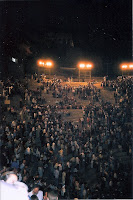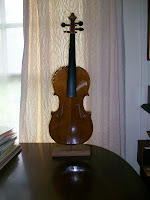
"I have heard the mermaids singing, each to each.
I do not think that they will sing to me."
T.S. Eliot, The Love Song of J. Alfred Prufrock
I just finished a collection of poems dealing with longing. Here are the notes and the painting by John William Waterhouse, 1891.
What song could the sirens sing which would be irresistible?
The sirens have long since left mythology and permeated every form of artistic expression. Though the sirens in art have been given many names and origins, all the stories agree that the maidens, two, three or five of them, once tempted sailors with their song, usually with fatal results.
In the Odyssey, though the witch Circe attributes dark deeds to the temptresses, Homer insists that the sirens appealed to the spirit rather than the flesh and says that once Odysseus heard their song, he sailed on, a wiser man.
Homer, Ovid, Virgil, Pliny the Elder and Leonardo wrote of the maidens. Jesuit writers of the 17th century asserted the actual existence of the Sirens. Sirens intruigued Kafka, who loved a dark story. He wrote of the temptresses in 1917, saying that the silence of the sirens was more ominous than their song.
Aglaopheme, Thelxiepeia, Thelxiope, Thelxinoe, Molpe, Aglaophonos, Aglaope, Pisinoe, Peisinoe, Parthenope, Ligeia, Leucosia, Raidna and Teles are the various names that have been given the sirens.
They may have lurked on an island called Sirenum scopuli, or on Anthemusa, Cape Pelorum, in the Sirenusian islands near Paestrum, or in Capreae. Their father may have been the river god Achelous or the Roman sea god, Phorcys; their mother is variously the muses Terpsichore or Melpomene, or Sterope or Chthon, the earth.
There is some question about whether mermaids and sirens are the same creature. In Spanish, French, Italian, Polish, Romanian and Portuguese, the words for mermaid are Sirena, Sirene, Sirana, Syrena, Sirena and Sereia. Most artists, however, seem to agree that mermaids and sirens are not the same, mermaids being not sinister but rather appealing enough to merit a ballade by Chopin, an opera by Dvorak, an iconic fairy tale, a statue in the Denmark harbor, and a Disney film which lamely gilds the lily of Hans Christian Andersen.
The idea of temptation incarnate has taken a thousand forms. In Poems of Irresistible Longing, I wanted to suggest some themes which might lure the contemporary traveler.





